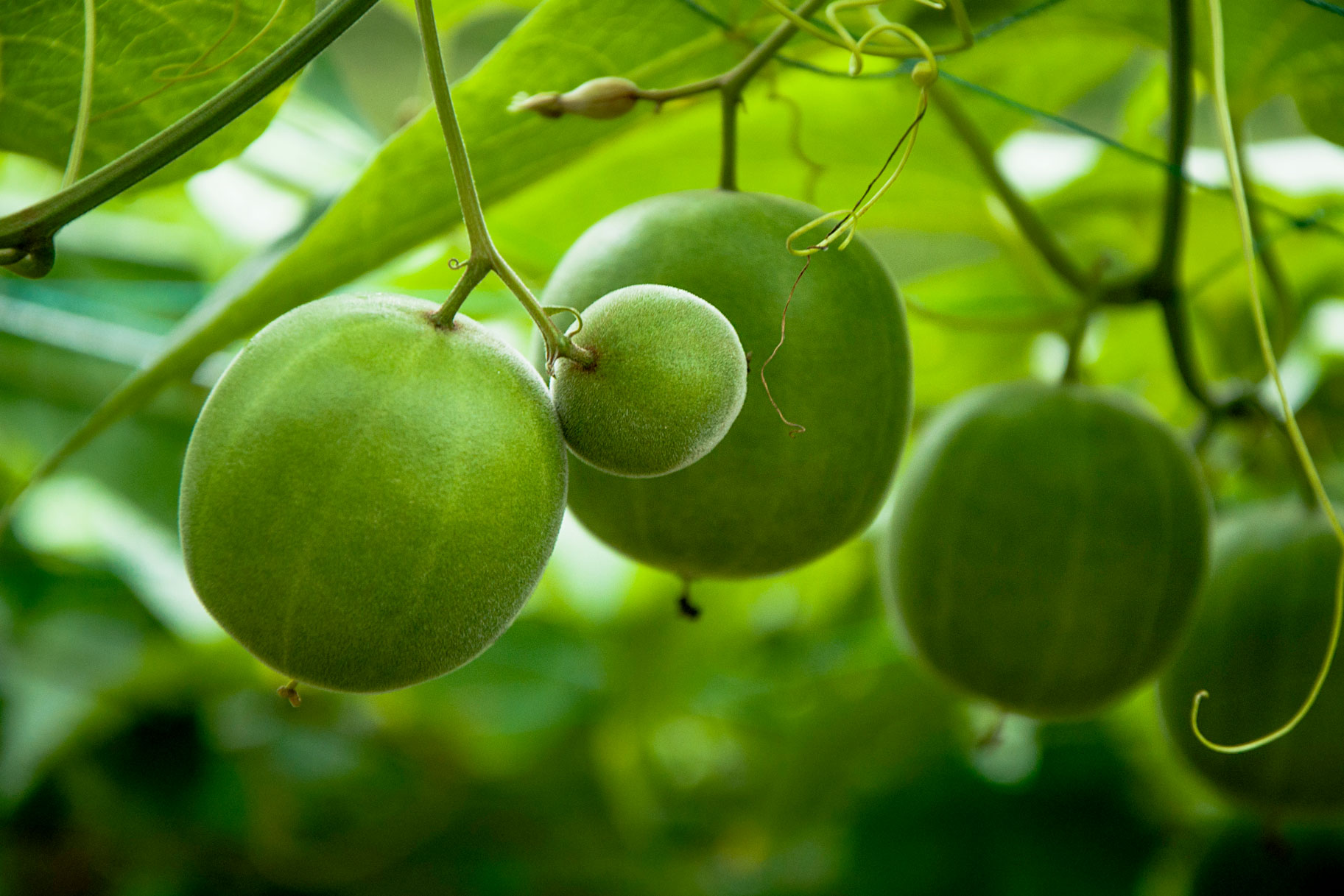What Exactly Is Monk Fruit, and Why Is It Popping Up Everywhere These Days?
Find out if you should be sweet on the latest sugar substitute (which is actually centuries old).

If you've been reading your food labels lately, you may have noticed an unusual ingredient popping up in energy drinks, yogurt, ice cream, and many more packaged goods sold at your local supermarket or health food store. The intriguingly-named monk fruit, or luo han guo, is a lemon-sized fruit grown in Southeast Asia, where it’s been used for centuries as a digestive aid. But Americans are pretty unlikely to encounter the food in its original, just-plucked state—because around these parts, the fruit is being (quite literally) pressed into service as a natural sweetener in all kinds of food.
“It’s being used as a nonnutritive sweetener,” explains Boston-based integrative registered dietitian Megan Faletra. “It’s a zero-calorie way to sweeten our food or beverages.” And monk fruit is up to 200 times sweeter than sugar, so a little goes a long way. Adding it instead of sugar in your tea or coffee can help slightly lower your daily calorie intake—and it doesn’t raise blood sugar levels, which means foods (baked goods, sauces, candies, beverages, etc.) made with monk fruit sweeteners are diabetic-friendly.
Of course, if you’ve been utterly turned off by the flavor of plant-based sweeteners before, you might be wary. But don’t give up hope. “Monk fruit is for people who want a natural sweetener, but don’t like that stevia taste,” Faletra says. “It’s the best alternative.”
So, monk fruit is all-natural—yay for being super healthy! Right? Well… “Anytime you’re using a sugar substitute, you have a tendency to crave more sugary foods,” says Faletra. “And the danger is that our taste buds are getting used to highly concentrated sweet flavors, so we don’t notice how a carrot is sweet anymore.”
Since you probably don’t really want to completely lose the ability to taste nature’s subtle sweetness, moderation might be a good approach with monk fruit (or any other type of natural and artificial sweetener, for that matter). Monk fruit sweeteners might be a little tougher to find than other sugar substitutes that already crowd the grocery shelves—check your local health food store or search online—but an increasingly devoted following may help them become more omnipresent in the near future. And when that happens, you can obviously brag about being way ahead of the monk-curve…



